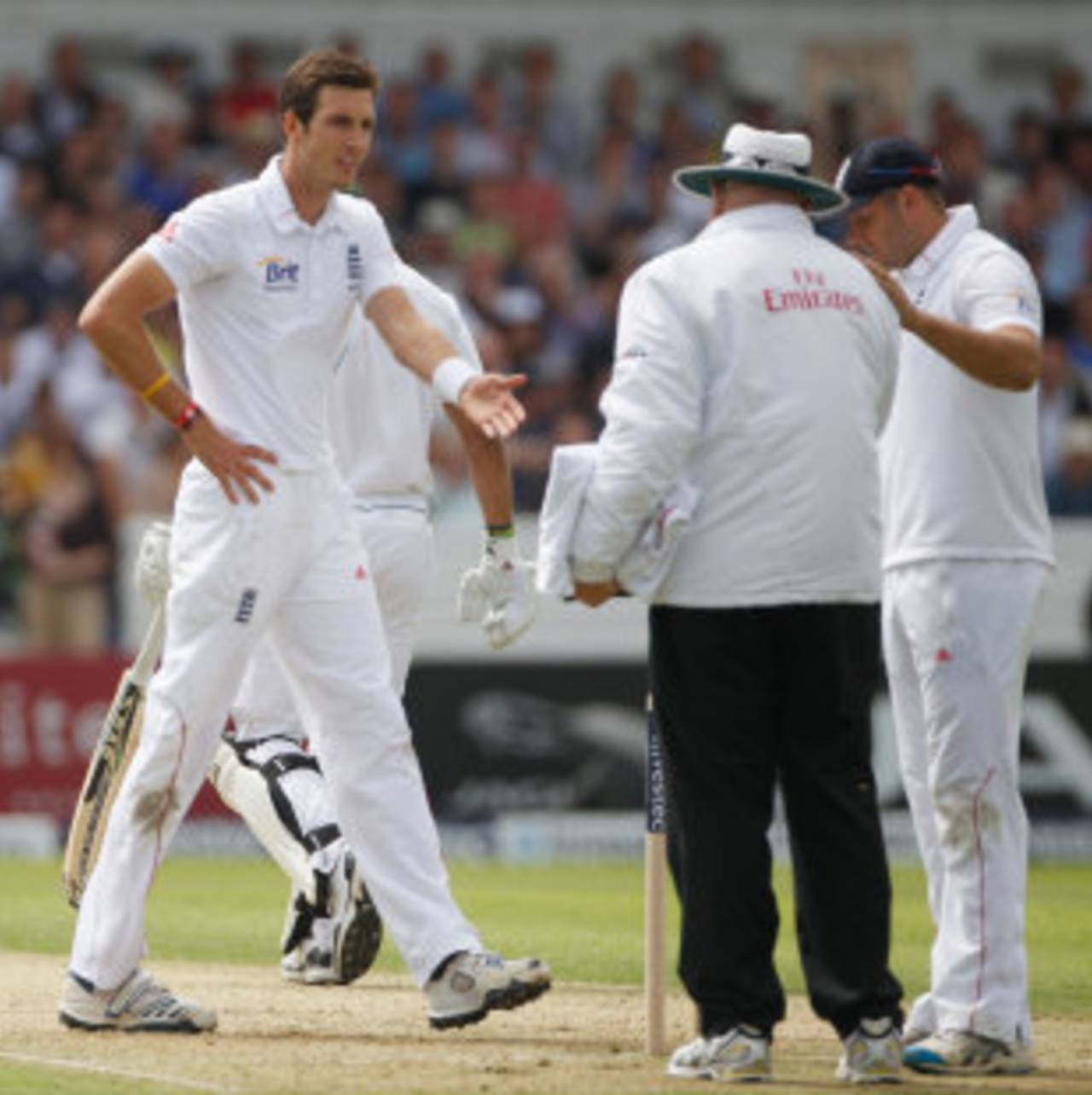Finn stumps problem to become no-ball
The MCC has announced a change to the Laws meaning a bowler hitting the stumps during their delivery stride will result in a no-ball being called
Alan Gardner
21-Feb-2013

Steven Finn's habit of hitting the stumps at the bowler's end first caused issues against South Africa last summer • Getty Images
If Steven Finn needed any further incentive to drop his habit of kneeing the stumps in his delivery stride, it has been provided by the announcement that it will in future be called a no-ball. The change to the Laws, rubber-stamped by the the MCC Committee, has been brought about specifically in response to Finn's persistent problem, which the England bowler is still trying to eradicate.
The new ruling will come into effect from October 2013 but it is possible for the ICC to change the playing conditions for international cricket to immediately reflect the Law.
The issue came to wider attention during England's home series against South Africa last summer, after a complaint from the batsmen that it was causing a distraction during the second Test at Headingley. Graeme Smith was caught at slip off a delivery that was called dead-ball by the umpires, as Finn had clipped the stumps at the non-striker's end. At the time, the MCC announced that it would review the Laws.
Although Finn has been working to deal with the problem in his delivery stride, the habit has seen umpires call dead-ball with regularity since last August and cost Finn another wicket during the ODI series in India, when Suresh Raina edged to slip. In his most recent outing, the second ODI against New Zealand, Finn trialled a new, shortened run-up, with four strides removed - but still clipped the stumps at one point during the match.
Until now, umpires only had recourse to Law 23.4(b)(iv) which states a dead-ball should be called whenever a batsman is "distracted by any noise or movement or in any other way while he is preparing to receive, or receiving a delivery".
In practice, Finn has been allowed one warning per series before a dead-ball is called but even this caused confusion on the New Zealand tour, when Finn collided with the stumps during the second ODI and Brendon McCullum hit the delivery for four. The delivery was allowed to stand and Alastair Cook could be heard asking the umpire, Rod Tucker, why a dead-ball wasn't called, as Finn had been warned during the T20 series.
The MCC's head of cricket, John Stephenson, said: "MCC continues to act as a robust guardian of the Laws of cricket, and must ensure that it consults widely within the amateur and professional game before making changes that will affect anyone who plays the game.
"MCC's decision today to make the breaking of the stumps during the act of delivery a no-ball provides clarity to the situation and removes the need for a subjective assessment to be made by the umpire as to whether the striker has been genuinely distracted or not. It also ensures that the striker will still be credited with any runs that he scores from the delivery, and will act as a significant disincentive to the bowler from doing it."
The change was recommended by the MCC's Laws sub-committee, which includes the ICC chief executive, Dave Richardson, and Simon Taufel, the former umpire who is now the ICC's umpire performance and training manager, after discussion with the MCC Cricket committee.
Alan Gardner is an assistant editor at ESPNcricinfo